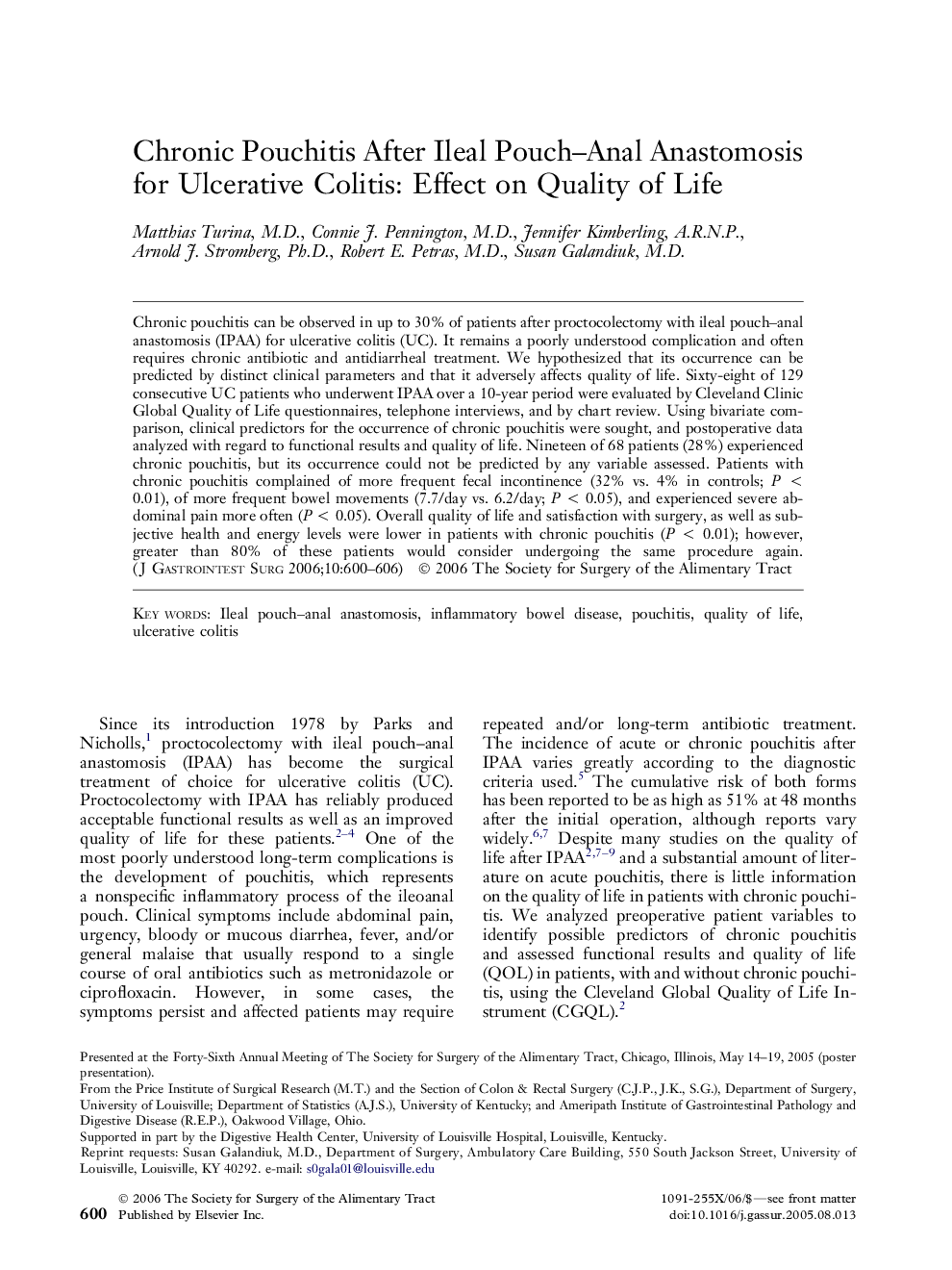| Article ID | Journal | Published Year | Pages | File Type |
|---|---|---|---|---|
| 4297215 | Journal of Gastrointestinal Surgery | 2006 | 7 Pages |
Abstract
Chronic pouchitis can be observed in up to 30% of patients after proctocolectomy with ileal pouch-anal anastomosis (IPAA) for ulcerative colitis (UC). It remains a poorly understood complication and often requires chronic antibiotic and antidiarrheal treatment. We hypothesized that its occurrence can be predicted by distinct clinical parameters and that it adversely affects quality of life. Sixty-eight of 129 consecutive UC patients who underwent IPAA over a 10-year period were evaluated by Cleveland Clinic Global Quality of Life questionnaires, telephone interviews, and by chart review. Using bivariate comparison, clinical predictors for the occurrence of chronic pouchitis were sought, and postoperative data analyzed with regard to functional results and quality of life. Nineteen of 68 patients (28%) experienced chronic pouchitis, but its occurrence could not be predicted by any variable assessed. Patients with chronic pouchitis complained of more frequent fecal incontinence (32% vs. 4% in controls; P < 0.01), of more frequent bowel movements (7.7/day vs. 6.2/day; P < 0.05), and experienced severe abdominal pain more often (P < 0.05). Overall quality of life and satisfaction with surgery, as well as subjective health and energy levels were lower in patients with chronic pouchitis (P < 0.01); however, greater than 80% of these patients would consider undergoing the same procedure again.
Keywords
Related Topics
Health Sciences
Medicine and Dentistry
Surgery
Authors
Matthias M.D., Connie J. M.D., Jennifer A.R.N.P., Arnold J. Ph.D., Robert E. M.D., Susan M.D.,
